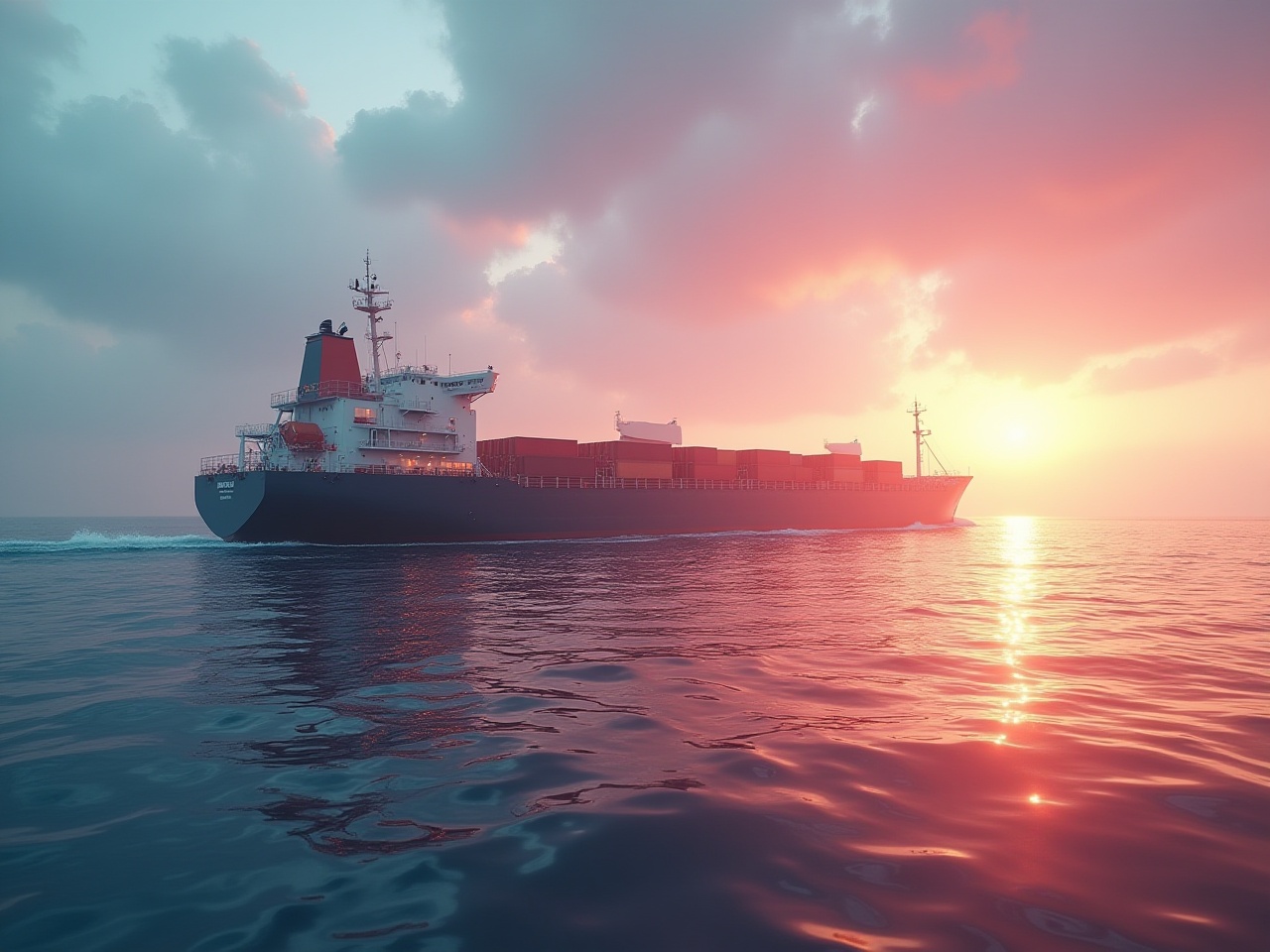The Unseen Forces in Shipping’s Climate Initiatives
The recent tides of change in the shipping industry have sparked discussions around the potential for a burgeoning climate deal aimed at doubling the global biofuels market. This article explores the profound implications of such a move, navigating the challenges and achievements that define the path ahead.
The Setting: A Historical Backdrop
In the heart of London, the headquarters of the International Maritime Organization (IMO) sits largely unnoticed, akin to the often-overlooked shipping industry it governs. A visit to this establishment feels reminiscent of stepping into a museum, filled with model ships, sculptures, and artworks that reflect maritime history. Yet, within its walls lies a visionary plan for the future of maritime trade targeting greenhouse gas emissions reduction.
Ambitious Targets for a Greener Future
2023 has seen a wave of decisive actions aimed at aligning the shipping industry with climate goals set for 2030, 2040, and a net-zero target by 2050. The new regulations represent a critical step forward, demonstrating a commitment to sustainability within a sector traditionally marred by environmental concerns.
Entering the Negotiation Arena
The significance of this agreement cannot be overstated, especially in a world where globally binding climate rules are scarce. The IMO’s framework, largely propelled by European initiatives, reflects international cooperation among nations—from East Asia to Latin America. A compromise, spearheaded by Singapore, aims to address the emissions profile of shipping fuels.
Key Features of the Regulation
One of the most notable mandates includes a reduction in greenhouse gas intensity for fuels used in shipping, with targets that gradually become more stringent over time. A penalty pricing system is also embedded within this framework for ships failing to meet intensity targets, introducing an innovative and somewhat controversial compliance approach.
The Glass Half Empty: Shortcomings of the Agreement
So, what could possibly dampen the celebratory mood surrounding this emerging framework? For starters, the boldness of the agreement may be undercut by its shortcomings. Nearly 90% of shipping emissions are proposed to be exempt from carbon penalties, and the estimated revenue from this initiative stands at a modest $10 billion annually—summed up, this figure equates to what the EU’s emissions trading scheme generates, but on a global scale.
Concerns Over Biofuels
The looming presence of biofuels in this scenario raises red flags. The risk of establishing a substantial new biofuel market, potentially doubling the volume by 2035, presents significant environmental challenges. If reliance on land-intensive biofuels, such as palm and soy, becomes the lowest-cost compliance path, it could lead to deforestation and further exacerbate climate issues. Tread carefully here; compromising forests for fuel is a slippery slope.
Negotiators’ Struggle for Balance
European negotiators faced a tough decision in securing a deal that garnered support from major producing nations like Brazil. Unfortunately, this often came at the expense of more rigorous environmental standards that would be legally binding within Europe. The outcome, loaded with implications, suggests a potential increase of 270 Mt CO2 emissions annually by 2035—approximately equivalent to the annual emissions of France.
Pushing for Zero-Emission Fuels
The current draft framework does not offer incentives for zero-emission fuels such as electricity or e-fuels. This presents a glaring hole; without amending this aspect, the shipping industry may not see a genuine business case for transitioning to cleaner fuels until as late as 2040.
Impact on Existing Shipping Regulations
Already, lobbyists within the shipping industry are using this deal to call for the dismantling of the EU’s shipping regulations, like FuelEU Maritime, which currently taxes a much larger portion of the sector’s emissions than the IMO’s forthcoming framework. A confined, unfettered adoption of this new framework could jeopardize the EU’s industrial strategies and funding mechanisms that promote sustainability.
The Cost of Goodwill
This begs the question: how much environmental damage can be justified for the sake of progress? Supporting the multilateral deal may come with a hefty price for biodiversity and emissions reductions. With Europe alone unable to bear the weight of shipping’s decarbonization efforts, global cooperation is crucial. The IMO will play an outsized role in harmonizing these efforts across nations.
Abschließende Überlegungen
The journey towards a more sustainable shipping industry is fraught with challenges, despite the strides made through international agreements. Transparency and collaboration are essential as nations navigate the complex road ahead. The success of this multilateral deal hinges not only on goodwill but also on genuine commitment to meaningful regulations that prioritize environmental protection.
Auf Plattformen wie GetTransport.com, the importance of logistics in supporting sustainable practices cannot be overlooked. From reliable transportation solutions for large items and cargo deliveries to efficient relocations, GetTransport.com stands ready to offer services tailored to diverse needs at competitive prices. By prioritizing transparency and environmental responsibility, GetTransport.com empowers users to make well-informed decisions in their transportation strategies. So, why not book your ride today? Check out the best offers at GetTransport.com.

 Die Rolle der Schifffahrt bei der Klimapolitik: Die bevorstehenden Herausforderungen enthüllen">
Die Rolle der Schifffahrt bei der Klimapolitik: Die bevorstehenden Herausforderungen enthüllen">